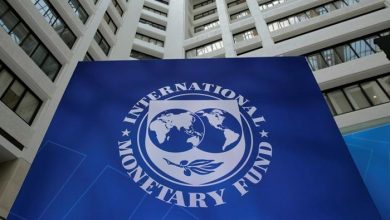Bank of Ghana Orders Banks to Revise Pricing, Enhance Lending Metrics, and Disclose Blacklisted Loan Defaulters

The Bank of Ghana has intensified regulatory scrutiny of the banking sector with a new set of directives aimed at promoting ethical pricing, curbing non-performing loans and protecting consumers.
Governor Dr. Johnson Asiama calls on commercial banks to urgently review their pricing models, eliminate exploitative lending practices and ensure full transparency in customer charges.
Speaking during a post-MPC engagement with bank CEOs in Accra, he condemned the practice of applying interest on dormant credit accounts, describing it as “unacceptable and unethical.”
“Such practices distort customer outcomes, misrepresent the true health of lending portfolios, and violate principles of fair treatment,” Dr. Asiama stated.
“We expect all banks to uphold pricing standards that are both commercially defensible and ethically sound.”
Addressing the rising concerns around digital lending, Dr. Asiama disclosed that the BoG is finalising comprehensive digital lending guidelines, expected by August 2025.
These will apply to both banks and non-bank lenders, introducing enforceable rules around licensing, interest disclosure, data privacy and ethical collection practices.
The Governor warned of growing abuse by unregulated online lenders, including cases of harassment and scams targeting vulnerable borrowers.
“Today, too many Ghanaians, especially young people and informal workers, are being lured by online lending platforms that make bold promises, only to turn around and trap them in cycles of hidden fees, harassment, or worse. We’ve received reports of individuals being threatened, shamed, or scammed, all under the guise of accessing quick loans. We cannot allow this to continue.”
“If your institution is active in digital lending, now is the time to prepare for compliance,” he warned, urging banks and their fintech partners to align with the upcoming regulations.
To restore lending discipline and improve credit risk management, the Governor also announced that commercial banks will be required to publicly disclose the names of willful defaulters in their audited annual financial statements.
These disclosures will include a sectoral breakdown of non-performing loans (NPLs) and be shared with key financial sector oversight bodies.
As part of broader asset quality reforms, the Central Bank has also directed that banks cap their NPL ratios at 10% of gross loans by December 2026.
Furthermore, restructuring rules are to be tightened, with loans only eligible for reclassification after sustained repayments.
Banks must now submit monthly NPL reports and publicly disclose key asset quality metrics.
“These actions form part of our long-term agenda to promote responsible lending, rebuild confidence, and safeguard the financial system,” Dr. Asiama said.
These latest interventions signal a broader commitment to restoring discipline and transparency in Ghana’s financial sector, while supporting sustainable access to credit and consumer protection in the evolving digital economy.









